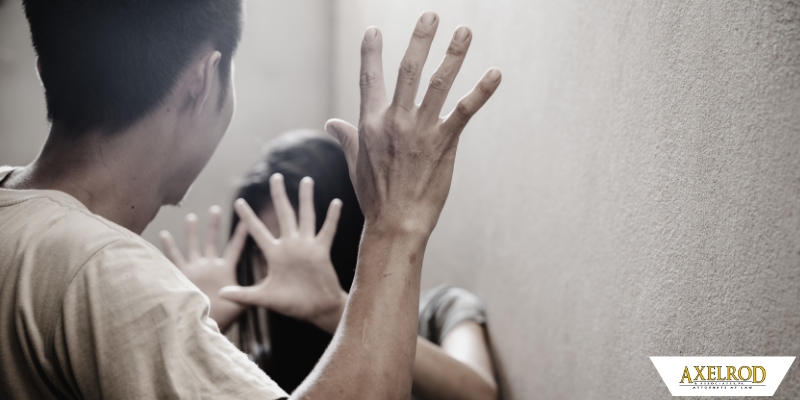4701 Oleander Drive, Suite A
Myrtle Beach, SC 29577
4701 Oleander Drive, Suite A
Myrtle Beach, SC 29577
Myrtle Beach Domestic Violence Lawyer
Domestic Violence Attorneys in Myrtle Beach, SC
Everyone has the right to feel safe in their homes, and domestic abuse is a significant threat to that right. The law does everything possible to eliminate domestic violence offenders from their homes and prevent further pain and suffering for victims. However, in some situations, wrongful accusations and arrests can be just as harmful as domestic violence.
When alleged victims come forward, their side of the story is not the only one that matters. These situations are often complicated and deserve proper attention from the court. Fortunately, the criminal court gives significant weight and attention to criminal domestic violence cases, which gives the accused time to tell their own side of the story.
If you are facing domestic violence charges, it is important to find an attorney who can represent you. These charges can alter your entire life, and it is important to your future to maintain your innocence if you have not done anything wrong. Our domestic violence attorneys are here to help.

Experienced Myrtle Beach, SC Domestic Violence Lawyers
The domestic violence lawyers on the Axelrod team know that domestic violence is a charged political issue in SC – police are under considerable pressure to make arrests for domestic violence.
Prosecutors are under pressure to get convictions for domestic violence, and the Circuit Solicitor – an elected official – is being watched closely by the media and the voting public to see how they handle domestic violence in their counties.
Even worse – police and prosecutors’ offices are given grant money to make domestic violence arrests and for domestic violence prosecutions. How do you suppose that influences their charging and prosecutorial decisions?
True incidents of domestic violence are certainly a problem, but wrongful arrests for domestic violence that could have been handled differently are also a problem in Horry County, SC.
What is Domestic Violence in South Carolina?
The elements of domestic violence charges in SC can be found in SC Code Section 16-25-20, and the possible charges range from domestic violence third degree – a misdemeanor punishable by as much as 90 days in jail – to domestic violence of a high and aggravated nature – a felony punishable by up to 20 years in prison.
3rd Degree Domestic Violence in SC
The most basic domestic violence charges in SC require proof that the person:
Caused physical harm to a household member, or
Offered or attempted to cause physical harm to a household member with the present ability to do so and “under circumstances reasonably creating fear of imminent peril.”
These are the basic elements for all domestic violence offenses in SC, but second degree, first degree, and domestic violence of a high and aggravated nature have additional elements that must be proven.
Domestic violence charges can be based on either assault (threats) or battery (physical harm) when it is directed at a household member.
A household member is defined as 1) a spouse, 2) a former spouse, 3) persons who have a child in common, or 4) “a male and female who are cohabiting or formerly have cohabited” (the SC Supreme Court has found this last sentence unconstitutional as applied to same-sex couples).
Third-degree domestic violence carries up to 90 days in jail.
2nd Degree Domestic Violence in SC
Domestic violence second degree requires proof that you caused physical harm or threatened to cause physical harm and:
- There was, or could have been, moderate bodily injury,
- The person committed domestic violence third degree while violating a protective order,
- The person has a prior conviction for domestic violence within the last ten years, or
- There were aggravating factors present at the time of the incident:
- 1) there was a minor present
- 2) the alleged victim was pregnant
- 3) it happened during the commission of a robbery, burglary, kidnapping, or theft,
- 4) the offense involved impeding the alleged victim’s breathing or air flow
- 5) the defendant blocked the alleged victim’s access to a phone or an electronic communication device to prevent them from calling police or an ambulance.
SC Code Section 16-25-10 defines moderate bodily injury as “physical injury that involves prolonged loss of consciousness or that causes temporary or moderate disfigurement or temporary loss of the function of a bodily member or organ or injury that requires medical treatment when the treatment requires the use of regional or general anesthesia or injury that results in a fracture or dislocation.”
Domestic violence 2nd degree carries up to three years in prison.
1st Degree Domestic Violence in SC
Domestic violence first degree requires proof that you caused physical harm or threatened to cause physical harm and:
- There was, or could have been, great bodily injury,
- The person committed domestic violence second degree while violating a protective order,
- The person has two or more prior convictions for domestic violence within the last ten years,
- The person used a firearm during the incident
- There were aggravating factors present at the time of the incident
- 1) there was a minor present
- 2) the alleged victim was pregnant
- 3) it happened during the commission of a robbery, burglary, kidnapping, or theft
- 4) the offense involved impeding the alleged victim’s breathing or air flow
- 5) the defendant blocked the alleged victim’s access to a phone or an electronic communication device to prevent them from calling police or an ambulance.
Section 16-25-10 defines great bodily injury as “bodily injury which causes a substantial risk of death or which causes serious, permanent disfigurement or protracted loss or impairment of the function of a bodily member or organ.”
Domestic violence 1st degree carries up to ten years in prison.
Domestic Violence of a High and Aggravated Nature
The most serious domestic violence charges in SC are punishable by up to 20 years in prison and require proof that:
- The offense was committed “under circumstances manifesting extreme indifference to the value of human life and great bodily injury to the victim results,”
- The offense was committed “with or without an accompanying battery and under circumstances manifesting extreme indifference to the value of human life, and would reasonably cause a person to fear imminent great bodily injury or death,”
- The person committed domestic violence first degree while violating a protective order.
SC Code Section 16-25-65 defines “circumstances manifesting extreme indifference to the value of human life” as:
- Using a deadly weapon,
- Choking the alleged victim,
- Committing the offense in the presence of a minor,
- Committing the offense against a pregnant person,
- Committing the offense during the commission of a robbery, burglary, kidnapping, or theft
- Blocking the alleged victim’s access to a phone or an electronic communication device to prevent them from calling police or an ambulance.
FAQs About South Carolina Domestic Violence Laws
If you’ve been charged with domestic violence in Myrtle Beach, you may have questions.
Below, we provide some general information, but you should contact a Myrtle Beach domestic violence attorney immediately to discuss the specifics of your case and to find out what your options are.
What Is the Central Domestic Violence Court in Horry County?
Domestic violence 3rd degree charges in Horry County (and many other counties) automatically go to what is called the Central Domestic Violence Court, which only hears domestic violence cases.
Call your attorney immediately after your arrest, and, depending on the circumstances, your attorney may request a jury trial before your initial court date. Once you have requested a jury trial, your case will be sent to the Central Jury Court for either Conway or Myrtle Beach, and you will not be required to appear until your case is set for a roster meeting in the central jury court.
If you are charged with domestic violence in one of Horry County’s municipal (city) courts, the process may be similar, but you should consult with your domestic violence attorney immediately to find out what your next steps are.
Can I Get a Domestic Violence Conviction Expunged in SC?
Domestic violence third degree convictions can be expunged after five years, but 2nd degree, 1st degree, or domestic violence of a high and aggravated nature cannot be expunged.
If your conviction cannot be expunged, you may be eligible for a pardon that will restore your civil rights including your right to own firearms, to hold a concealed weapons permit (CWP), and to apply for occupational licenses.
Will I Lose My Guns If I’m Convicted of Domestic Violence?
If you are convicted of any domestic violence offense, you are prohibited from owning a firearm or a concealed weapon permit (CWP) under state and federal law.
What Is a Primary Aggressor?
SC Code Section 16-25-70 says that, if the responding officer receives reports from both parties that the other party committed domestic violence, the office must determine who the primary aggressor was and must not arrest the other person.
If the officer arrests both parties, the officer must include a statement in their report that they attempted to determine the primary aggressor and were unable to make the determination based on the evidence available at the time.
Can the Victim Dismiss My Domestic Violence Charges?
The alleged victim cannot dismiss your domestic violence charges. The prosecutor can dismiss your charges, but the alleged victim is not a party to the action. The “plaintiff” in any criminal case is the State of SC, not the victim.
The alleged victim can request that the prosecutor dismiss the charges, but you cannot contact the alleged victim and talk to them about this – if you do, you may be violating the no-contact provisions in your bond and you may be opening yourself up to additional criminal charges for tampering with a witness.
Can Domestic Violence Charges be Reduced?
Each degree of domestic violence is a lesser included offense of the greater degrees of domestic violence. For example:
- Domestic violence first degree is a lesser included offense of domestic violence of a high and aggravated nature
- Domestic violence second degree is a lesser included offense of domestic violence first degree and domestic violence of a high and aggravated nature
- Domestic violence third degree is a lesser included offense of domestic violence second degree, domestic violence first degree, and domestic violence of a high and aggravated nature
This means that, if the evidence supports it, the prosecutor can reduce your charges to a lesser degree of domestic violence, or the jury can find you guilty of a lesser degree of domestic violence at trial.
Sometimes, the prosecutor will offer to “reduce” a domestic violence charge to an assault and battery charge. Although assault and battery may look slightly better on your criminal record than domestic violence, you should be aware that federal law looks to the underlying facts of an arrest to determine whether a prior conviction is a crime of domestic violence for purposes of immigration law and unlawful possession of a firearm.
For purposes of federal law, an assault and battery conviction where the alleged victim is a household member is a crime of domestic violence, and you are still prohibited from owning a firearm or CWP.
How Do You Fight a Domestic Violence Case in SC?
Domestic violence defense arguments require the help of an experienced attorney. Without proper legal help, it is unlikely that you will be able to maintain your innocence against the alleged victim’s argument. Once you have a domestic violence attorney, they will begin to build your case based on your experience, the evidence, and the circumstances surrounding the alleged domestic violence incident. Your side of the story is valid, and your attorney’s job is to tell your story to the court.
Can You Drop a CDV Charge in SC?
You personally cannot drop criminal domestic violence or felony domestic violence charges. Similarly, the alleged victim cannot have the charges dropped once they have been filed. However, the prosecutor may drop the charges if there is insufficient evidence or if facts come forward that dismantle the prosecution’s argument. Criminal charges depend upon the state prosecutor, not upon the alleged victim or the defense, and therefore the state prosecutor is the only individual with the power to drop the charges.
How Long Does a CDV Stay on Your Record in South Carolina?
Five years. If five years pass without any other convictions or offenses, you may file to have your criminal domestic violence conviction removed from your record. This may help you to find better housing, job opportunities, etc. It is essential to keep your record clean during this time, as the offense cannot be removed if you are convicted of another crime during the five-year period following your CDV conviction.
Is There a Statute of Limitations on Domestic Violence in SC?
Technically, law enforcement can arrest an individual on domestic violence charges at any time after the offense has occurred. There is no time limit associated with the crime. However, the more time that passes, the less likely an arrest and conviction will become. As the evidence fades and there are delays in reporting, law enforcement will have fewer grounds to make an arrest. The statute of limitations for most assault offenses is three years.
GOT AXELROD?
If you have been charged with domestic violence in SC, the state is already building their case against you and preparing for trial. You need an experienced defense lawyer on your side immediately who can do the same.
Call the domestic violence lawyers in Myrtle Beach at Axelrod & Associates now at 843-353-3449 or complete our contact form to set up an initial consultation.
Need help? Contact Axelrod & Associates, P.A.

Request your
Consultation
The fields marked with * are mandatory.






